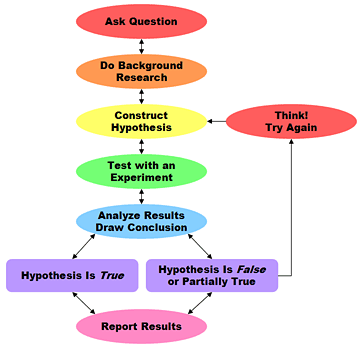I was explaining why I thought the religious quest was worth entering upon. I was somewhat skeptical at first but there was literally nothing to loose and much to gain. When I meet people who seem to have obtained true happiness , meaning in life, and selfless love for others and they tell me how they obtained it I will listen closely. It's only sensible to try their advice. If it doesn't measure up then reject it. If it does then you've found something wonderful.
Are you saying that you should subscribe to belief in god on the basis of how that benefits yourself? Sorry, I couldn't do that. Self-delusion isn't something that I am in the practise of doing.
When millions of people have consistently claimed to have obtained certain positive results and they show the fruits of this being the case than it is worth looking into the method and beliefs that they had which made it possible. There is a strong consistency of sorts here. Appeal to authority certainly isn't a full proof method and shouldn't be the highest rule of appeal but it has its practical benefits and most folks do it in regards to science. Most people know little to nothing about science from personal experimentation. yet they are not overly credulous of well accepted theories. They often see useful technologies that are said to operate based on the laws these theories describe. Do they actual KNOW that they are true in any absolute sense? Probably not. If they wanted to perform the same experiments and had accesses to the same equipment they would probably come to the same conclusions though and they trust this to a degree. It's the same with the spiritual path.
Where do I start?
Note that the entire point of science is that humans, if left to their 'intuition', are horrible at inferring reality from observations. Pareidolia is an example, and the use of psychiatric tests like the Rorschach test exploit this psychological 'weakness'. The prevalence of the hot hand and gambler's fallacies are also testament to this. The point I am making is that human interpretation of reality is flawed, and
it is flawed in predictable and repeatable ways. A simple example is the placebo effect. Therefore, given a sighting, even by thousands or millions of people, of some kind of phenomenon, the reality often is some more mundane phenomenon that people ascribe to the supernatural through a fallacious argument from ignorance or God of the Gaps fallacy. c.f. UFO sightings.
You are right in one aspect; appeals to ignorance, popularity, and authority, among others, are spectra rather than always fallacious. A valid argument from popularity, for example, could occur if you were arguing for the likeability of, say, a Presidential candidate (note capitalization

). An invalid argument from argument, though, would be something like "many people think that bees defy the known laws of physics, therefore they do".
In addition, there must be a certain trust placed on scientific figures for integrity, and a certain trust that what other scientists say is a fair and accurate representation of their work. However, saying that science involves fallacious arguments from authority is wrong, because science is based on a consensus (this is something that regularly frustrates me about science reporting, by the way) of experts. In addition, the scientific process is open. The papers are there, the data is freely available in the papers for replication, and most scientists, if asked, will happily give details of the equipment and protocols they used to other people wanting to replicate their research (c.f. Richard Lenski & the Shlafly incident). Of course, for example in regards to the Shlafly debacle, the E. coli are only available to those who can prove they are trained and certified to handle laboratory bacteria. An analogy could be made to open source software; sure, the source is there for anyone to edit, but the mere fact that some proficiency in programming is required in some way closes it to accessibility. And this, I believe, is a necessary trade-off between quality and open-ness (which is something, by the way, that anyone arguing for Creationism or ID on the basis of 'academic freedom' fails to understand).
Going back to the original point(s), yes, I have personally tested and validated several very basic physical theories of electricity, magnetism, motion, etc. through the course of my education. For the rest, the practical consequences of their application is enough for my purposes.
There are also people who refuse to perform experimentation yet rail against scientific theories and this is also the case with some regarding religion and it's methods. The young earth creationists are a good example of this. The key is to listen to what people are saying , perform the suggested experiment, and either confirm or deny the theory based on the results. Some people reject it without even having properly performed the experiment though. It's like the bishop who was afraid to look into the telescope and just rejected the ability of telescopes to magnify images in the first place. Prove it without me doing the experiment myself! What if my eyes are just deceiving me when I look? I shouldn't need to have faith enough to look into the telescope if it's actually true!
I guess it is a throwback to the Aristotelian philosophy of essentialism, and its offshoot that everything that is knowable about the universe can be known purely through (illogical and fallacy-ridden) thought. It is an interesting parallel to the rut that Western civilization found itself stuck inside for nearly a millennium, primarily because of this exact belief.
What about the a pirori assumptions of science in relation to consistent results?
What do you mean?


